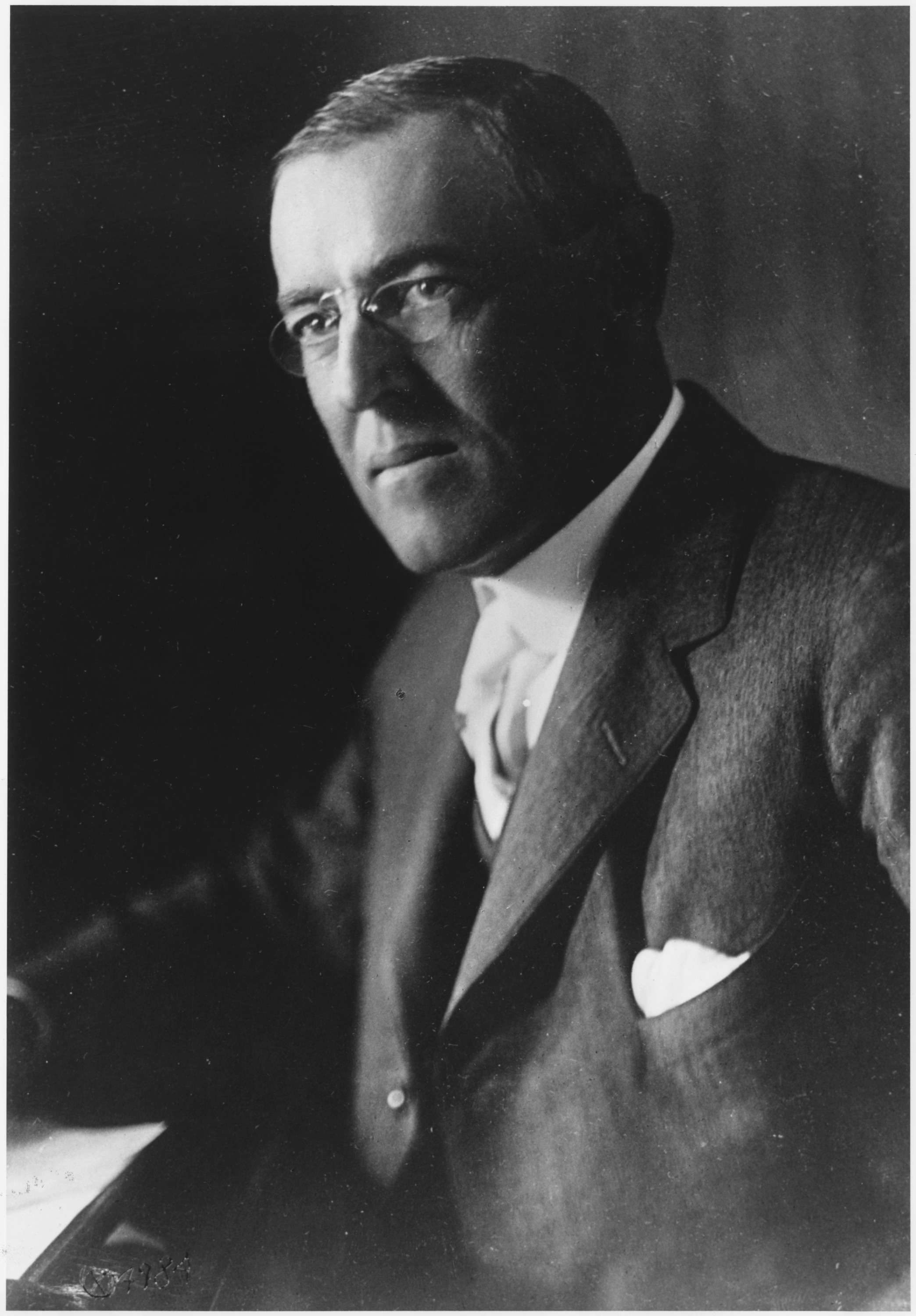Woodrow Wilson
Add to Favorites:
Add all page(s) of this document to activity:

Woodrow Wilson was the 28th president of the United States, serving from 1913 to 1921 and leading the nation through World War I.
His campaign slogan throughout his 1916 reelection campaign was "he kept us out of war," but on April 2, 1917, Wilson reversed course and called on Congress to provide a declaration of war for American intervention in World War I. Although this shift in policy contradicted Wilson’s isolationist principles and firm commitment to American neutrality, the Central Powers had begun to pose a clear and formidable threat to the United States by 1917.
Wilson’s vision of the war began to change by the winter of 1917, when the British government intercepted a telegram sent by German Foreign Minister Author Zimmerman to Germany’s ambassador in Mexico, Heinrich von Eckardt. The telegram was a proposal to Mexico asking the nation to ally with Germany and to attack the United States in return for territory lost in the Mexican-American War. Despite the fact that Mexico rebuffed the German offer, American public opinion turned to outrage once the cable was leaked to the press in March.
Though he had been an ardent isolationist and established a firm neutrality policy during his first term, Wilson identified that his pursuit of peace necessitated American military action in "the war to end all wars." In addition to the direct threat posed to the United States by Germany and the other Central Powers, Wilson’s drive to "make the world safe for democracy" was a cornerstone of his decision to include America in the Allied coalition.
His campaign slogan throughout his 1916 reelection campaign was "he kept us out of war," but on April 2, 1917, Wilson reversed course and called on Congress to provide a declaration of war for American intervention in World War I. Although this shift in policy contradicted Wilson’s isolationist principles and firm commitment to American neutrality, the Central Powers had begun to pose a clear and formidable threat to the United States by 1917.
Wilson’s vision of the war began to change by the winter of 1917, when the British government intercepted a telegram sent by German Foreign Minister Author Zimmerman to Germany’s ambassador in Mexico, Heinrich von Eckardt. The telegram was a proposal to Mexico asking the nation to ally with Germany and to attack the United States in return for territory lost in the Mexican-American War. Despite the fact that Mexico rebuffed the German offer, American public opinion turned to outrage once the cable was leaked to the press in March.
Though he had been an ardent isolationist and established a firm neutrality policy during his first term, Wilson identified that his pursuit of peace necessitated American military action in "the war to end all wars." In addition to the direct threat posed to the United States by Germany and the other Central Powers, Wilson’s drive to "make the world safe for democracy" was a cornerstone of his decision to include America in the Allied coalition.
This primary source comes from the Records of the Office of the Chief Signal Officer.
National Archives Identifier: 530713
Full Citation: Photograph 111-SC-4984; Woodrow Wilson; Photographs of American Military Activities, ca. 1918 - ca. 1981; Records of the Office of the Chief Signal Officer, Record Group 111; National Archives at College Park, College Park, MD. [Online Version, https://www.docsteach.org/documents/document/woodrow-wilson, April 25, 2024]Rights: Public Domain, Free of Known Copyright Restrictions. Learn more on our privacy and legal page.



